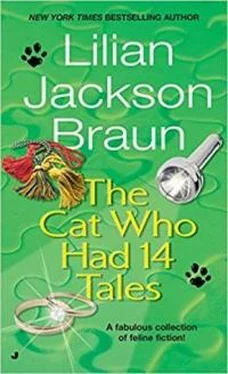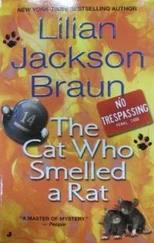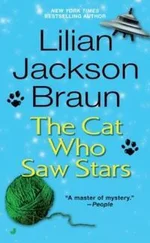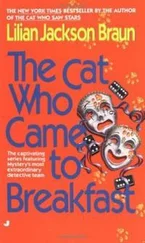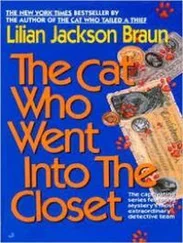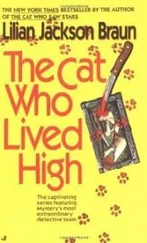Then, while little Donald showered and dressed for dinner, his parents enjoyed their Quiet Hour in the master suite. Mr. Hopple, wearing a silk dressing gown, opened an enormous Dutch cupboard said to have belonged to Peter Stuyvesant, and now outfitted as a bar. “Will you have the usual, sweetheart?” he asked.
“Don’t you think the occasion calls for champagne, darling?” his wife replied. “I’m so happy to see you safely home. There’s a bottle of D.P. chilling in the refrigerator.”
Her husband poured the champagne and proposed a sentimental toast to his lovely wife. Mrs. Hopple had been a national beauty queen twenty years before and still looked the part, whether wearing a Paris original to a charity ball or designer jeans around the farm.
“First tell me about the small fry,” Mr. Hopple said. “They’ve been on my mind all week.” The Hopples never called their children “kids.”
“Good news from John,” said his wife, looking radiant. “He’s won two more honors in math and has made the golf team. He wants to attend a math camp this summer, but first he’d like to bring five schoolmates home for a week of fishing and shooting.”
“Good boy! He has a well-balanced perspective. Is he interested in girls as yet?”
“I don’t think so, dear. He’s only ten, you know. Mary is having her first date this weekend, and it’s with an ambassador’s son—”
“From which country?” Mr. Hopple cut in quickly.
“Something South American, I believe. By the way, she’s won all kinds of equestrian ribbons this spring, and she wants our permission to play polo. Her grades are excellent. She’s beginning to talk about Harvard—and business administration.”
“Good girl! Someday it will be Hopple & Daughter, Inc. And how is Donald progressing?”
Mrs. Hopple glowed with pleasure. “His teacher says he’s three years ahead of his age group in reading, and he has a vivid imagination. We may have a writer in the family, dear. Donald is always making up little stories.”
Mr. Hopple shook his head regretfully. “I had hoped for something better than that for Donald. How much time does he spend with his computer and his telescope?”
“None at all, I’m afraid, but I don’t press him. He’s such a bright, conscientious child, and so good! Cats are his chief interest right now. The calico in the stable had a litter last month, you remember, and Donald acts like a doting godfather. Sometimes I think that he may be headed for veterinary medicine.”
“I hardly relish the prospect of introducing ‘my son the horse doctor.’ I’d rather have a writer in the family.” Mr. Hopple poured champagne again. “And how is the household running, dear?”
“The week was rather eventful, darling. I’ve made a list. First, it appears there was a power outage Wednesday night; all the electric clocks were forty-seven minutes slow on Thursday morning. There was no storm to account for it. I wish there had been. We need rain badly. Ever since the outage, television reception has been poor. The repairman checked all our receivers and can find nothing wrong. The staff is quite upset. The houseman blames it on secret nuclear testing.”
“And how is the staff otherwise?” The Hopples never referred to “servants.”
“There are several developments. Both maids have announced that they’re pregnant . . . . I’ve had to dismiss the stableboy because of his bad language . . . . And the cook is demanding more fringe benefits.”
“Give her whatever she asks,” Mr. Hopple said. “We don’t want to lose Suzette. I trust the gardeners are well and happy.”
Mrs. Hopple referred to her list. “Mr. Bunsen’s arthritis is somewhat worse. We should hire another helper for him.”
“Hire two. He’s a loyal employee,” her husband said. “Is the new houseman satisfactory?”
“I have only one complaint. When he drives Donald to school he alarms the boy with nonsense about Russian plots and visitors from outer space and poisons in our food.”
“I’ll speak to the man immediately. Were you able to replace the stableboy?”
“Happily, yes. The school principal sent me a senior who speaks decently. He’s well-mannered and has just won a statewide science competition. He may have a good influence on our son, dear. Today Donald wore his NASA suit for the first time.”
“That’s promising. What’s the boy’s name?”
“Bobbie Wynkopp. He lives in the little house beyond our south gate.”
“Remind me to inquire, dear, if he’s noticed any trespassers in the south meadow. I saw evidence of a bonfire when I came in for a landing this afternoon. I don’t object to picnickers, but I don’t want them to start grass fires in this dry weather.”
A melodious bell rang, and the Hopples finished dressing and went downstairs to dinner.
Donald appeared at the table in his little white Italian silk suit, basking in his parents’ approval and waiting eagerly for the conversation to be directed his way. After the maid had served the leeks vinaigrette, Mr. Hopple said: “Well, young man, have you had any adventures this week?”
“Yes, sir,” the boy said, his large eyes sparkling. “I saw a weird cat in the stable.” Elevated on two cushions, he attacked the leeks proficiently with his junior-size knife and fork, crafted to match the family’s heirloom sterling. “I don’t know where he came from. He’s got long whiskers.” Donald held up both hands to indicate roughly eighteen inches.
“That sounds like a fish story to me,” said Mr. Hopple with a broad wink.
Donald smiled at his father’s badinage. “It’s true. He’s too little to have such long whiskers. He’s weird.”
His mother said gently: “Young cats have long whiskers and large ears, darling. Then they grow up to match them.”
Donald shook his head. “He’s not a kitten, Mother. He acts grown-up. Sometimes his whiskers are long, and sometimes they’re short. He’s weird. I call him Whiskers.”
“Imagine that!” his father said, striving to maintain a serious mien. “Retractable whiskers!”
Donald explained: “They get long when he’s looking for something. He sticks his nose in everything. He’s nosy.”
“The word we use, darling, is inquisitive,” his mother said gently.
“His whiskers light up in the dark,” the boy went on with a sense of importance as his confidence grew. “When he’s in a dark corner they’re green like our computer screens. And his ears go round and round.” Donald twirled his finger to suggest a spinning top. “That’s how he flies. He goes straight up like a helicopter.”
A swift glance passed between the adults. “This Mr. Whiskers is a clever fellow,” said Mr. Hopple. “What color is he?”
Donald thought for a moment. “Sometimes he’s blue. Most of the time he’s green. I saw him turn purple yesterday. That’s because he was mad.”
“Angry, darling,” his mother murmured. “And what does the new stableboy think of Whiskers?”
“Bobbie couldn’t see him. Whiskers doesn’t like big people. When he sees grown-ups he disappears. Whoof! Like that!”
Mrs. Hopple rang the bell for the next course. “And what kind of voice does this wonderful little animal have, dear? Does he scold like the Siamese or meow like the other cats?”
Donald considered his reply while he properly chewed and swallowed the last mouthful of leek. Then he erupted into a loud babel of sounds: “AWK AWK ngngngngng hhhhhhhhhhhhhhh beep-beep-beep beep-beep-beep AWK.”
The maid’s eyes expressed alarm as she entered the dining room to remove the plates, and she was still regarding Donald with suspicion when she served the next course.
At that moment the boy shouted: “There he is! There’s Whiskers!” He pointed to the window, but by the time the adults had turned their heads to look, Whiskers had disappeared.
Читать дальше
